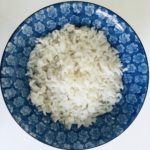Shellfish Allergy:
A shellfish allergy is an immune reaction to proteins of a certain type of shellfish, such as crab, lobster and shrimp. It is recommended that if you are allergic to one type of shellfish, avoid all shellfish. There is no need to avoid fish, unless a fish allergy is also present.
Symptoms of shellfish allergy:
Symptoms of shellfish allergy can be divided into 3 categories:
- Gastrointestinal – nausea, vomiting, stomach pain, diarrhea
- Respiratory – wheezing, asthma, nasal congestion
- Skin – hives, itching, swelling of tongue or face
Anaphylaxis is the most severe allergic reaction to shellfish, involving every above organ system. It can lead to anaphylactic shock and death.
The shellfish-free diet:
Following a shellfish-free diet requires the elimination of the following types of foods:
- Crustaceans: Crab, lobster, crayfish, shrimp, prawn, scampi
- Mollusks: Abalone, oysters, clams, mussels, scallops, snail (escargot), octopus, squid, calamari
- Sauces made from above (oyster sauce)
- For a more detailed list, see the Shellfish-Free Guide
Nutritional needs:
Shellfish provide niacin, vitamin B6 and B12, phosphorus, selenium, and iron. These nutrients can easily be found in other foods such as legumes, meat, grains, and oils. Therefore, nutrient deficiency is not a concern when eliminating fish from the diet.






what people are talking about